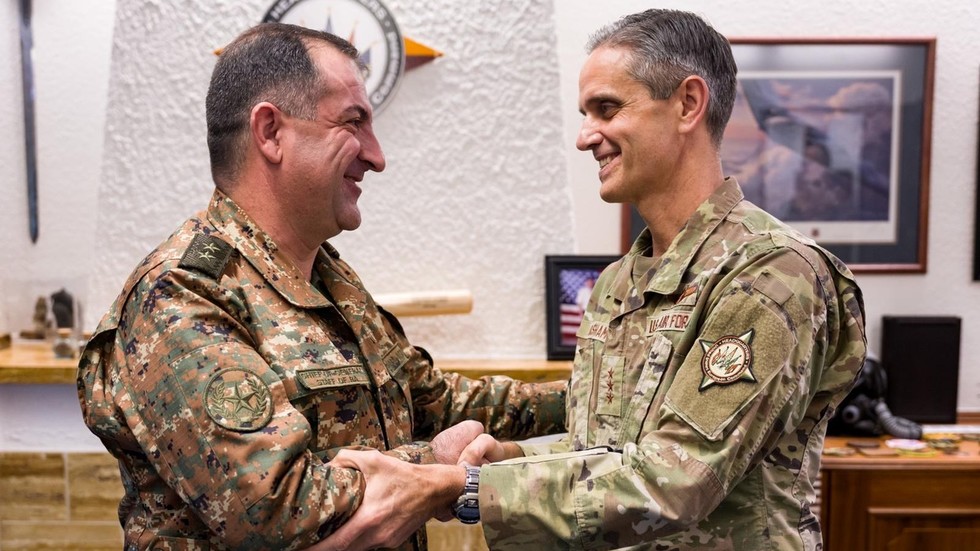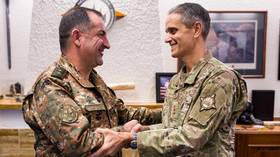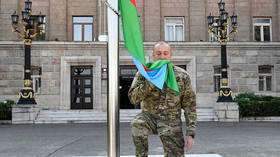
American general marks “milestone event” as Armenian deputy defense minister tours military training range in Germany

US Lt. Gen. Steven Basham (R) and Armenian Lt. Gen. Edvard Asryan at EUCOM headquarters in Stuttgart, Germany. © Frederick Wheeler / EUCOM
Armenia, a Russian ally, has sent the chief of its general staff to a top NATO training center in Bavaria, Germany, to discuss the help that Yerevan can get from Washington in reforming its armed forces. The visit comes weeks after Armenia’s politically costly failure to confront its neighbor Azerbaijan over Nagorno-Karabakh.
Deputy Defense Minister Lt. Gen. Edvard Asryan, who heads the Armenian general staff, was hosted last Friday by US Air Force Lt. Gen. Steven Basham, the US European Command (EUCOM) deputy commander, at its headquarters in Stuttgart, Germany. The visiting official also toured the Joint Multinational Readiness Center in Hohenfels, a US-operated NATO training facility.
Basham hailed the visit as a “milestone” in the bilateral relationship and said the US and Armenia sought to “deliberately and incrementally develop our defense relationship,” as quoted by EUCOM.

Read more
Asryan briefed the American host on Yerevan’s plans to make its military more professional and capable. The general identified command and control systems, battlefield medicine and the training of non-commissioned officers as being among of the key areas for reform and detailed “the assistance that is being expected from the US in implementing them,” according to a statement released by the Armenian Defense Ministry on Monday.
Armenia is a Russian ally and a fellow member of the Collective Security Treaty Organization (CSTO), a regional defense bloc. It is one of a handful of nations that host a Russian military base.
However, the government of Prime Minister Nikol Pashinyan has been distancing itself from Moscow over the years. He has claimed that the CSTO failed to protect Armenia in 2022, amid deadly border clashes with its neighbor and rival, Azerbaijan. The organization opted not to deploy troops to fight Azerbaijan when requested to do so by Yerevan, instead facilitating a truce and stationing monitors along the border.
In September, the Pashinyan government suffered a political blow when Azerbaijan seized full control of Nagorno-Karabakh, a predominantly ethnic-Armenian region of the country which had existed as an unrecognized breakaway republic since the 1990s. The virtually unopposed takeover resulted in an influx of refugees in Armenia as well as mass protests against the prime minister, who rejected calls for his resignation.
READ MORE: France offers weapons to Russian military treaty ally
Russia has said it was not in a position to intervene in Nagorno-Karabakh, since Pashinyan himself had recognized Baku’s sovereignty over the territory, including when he signed the truce with Azerbaijan last year.




